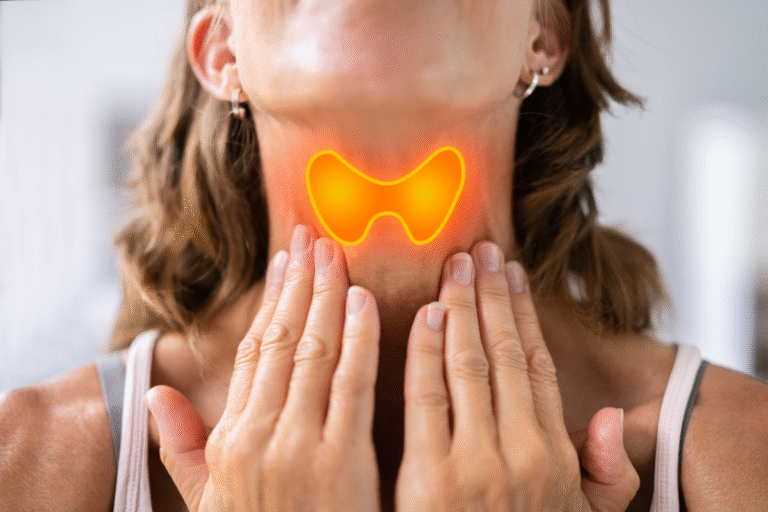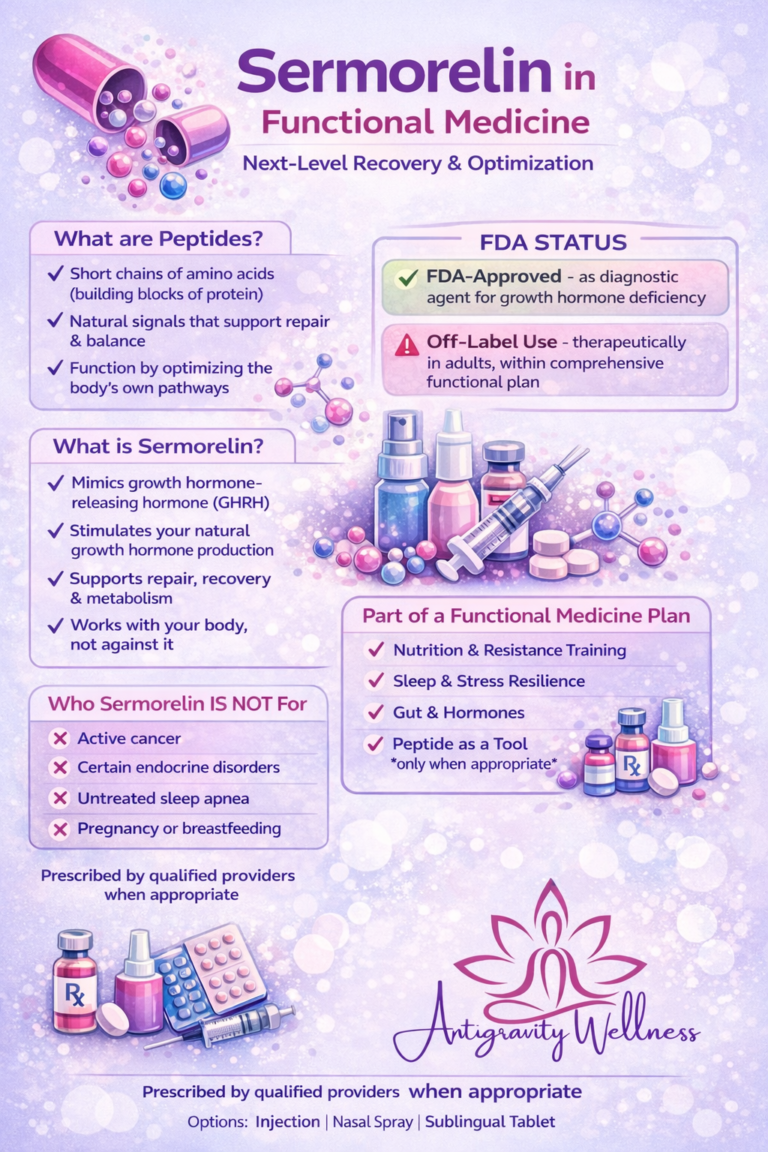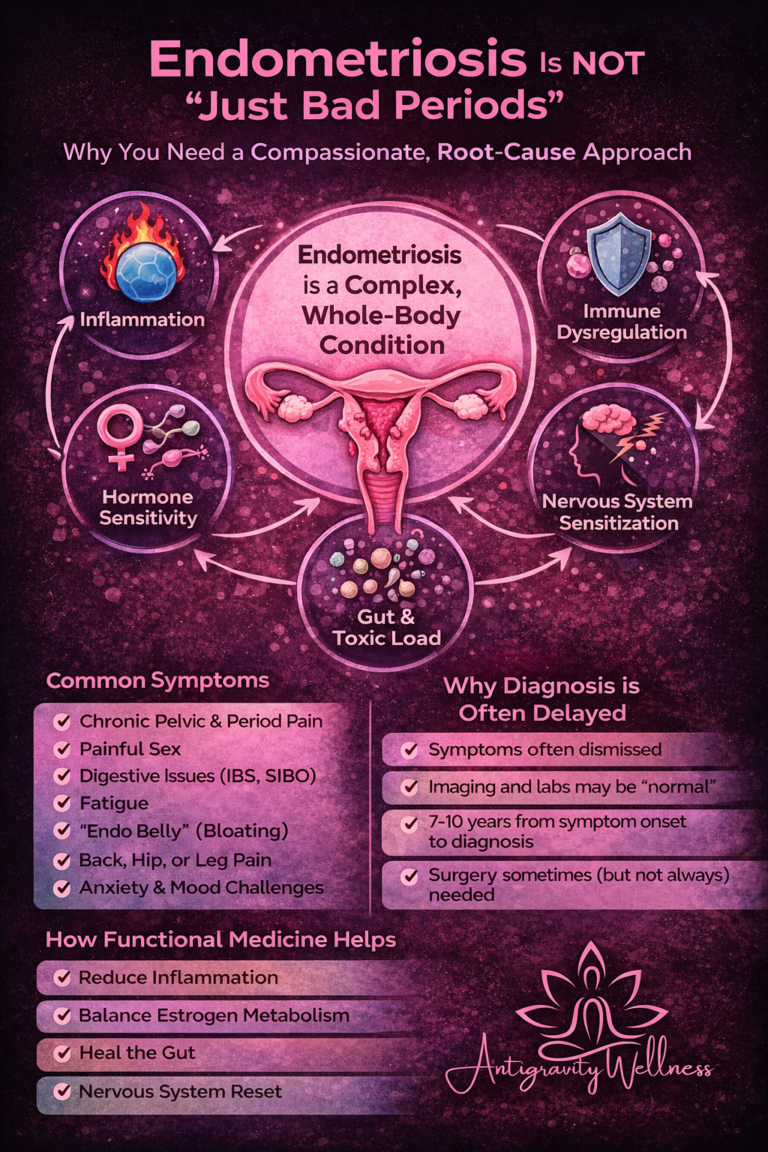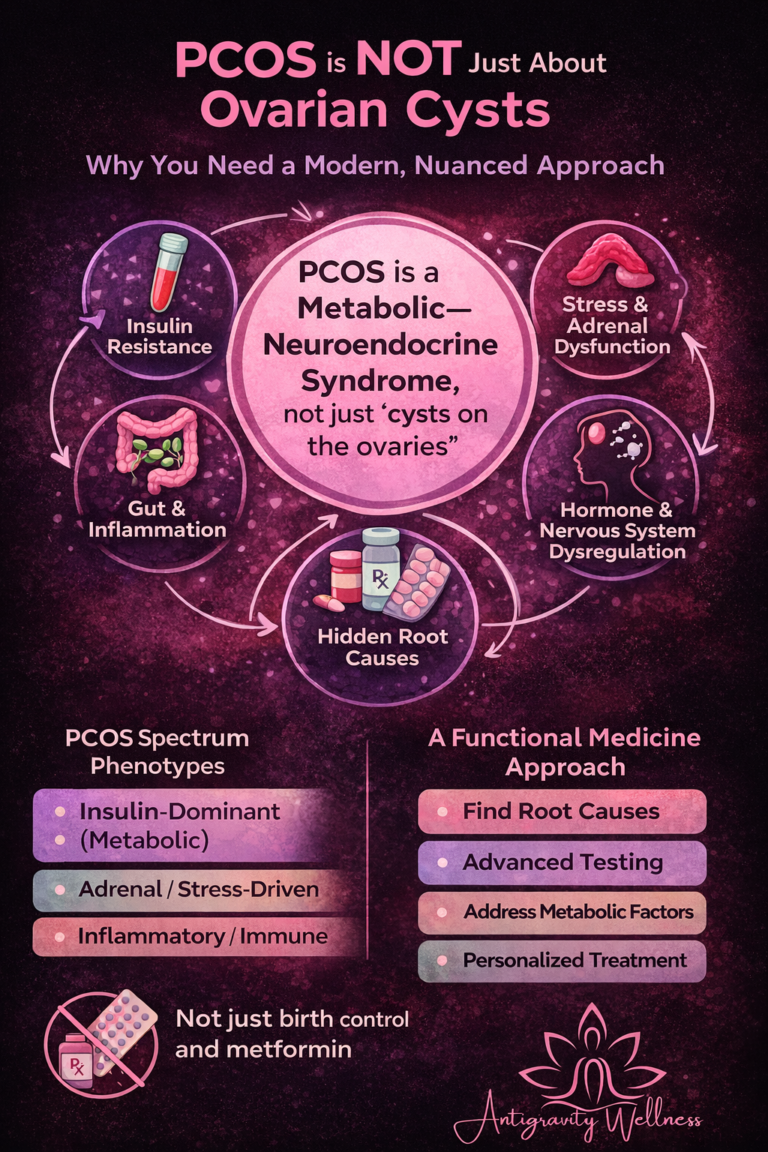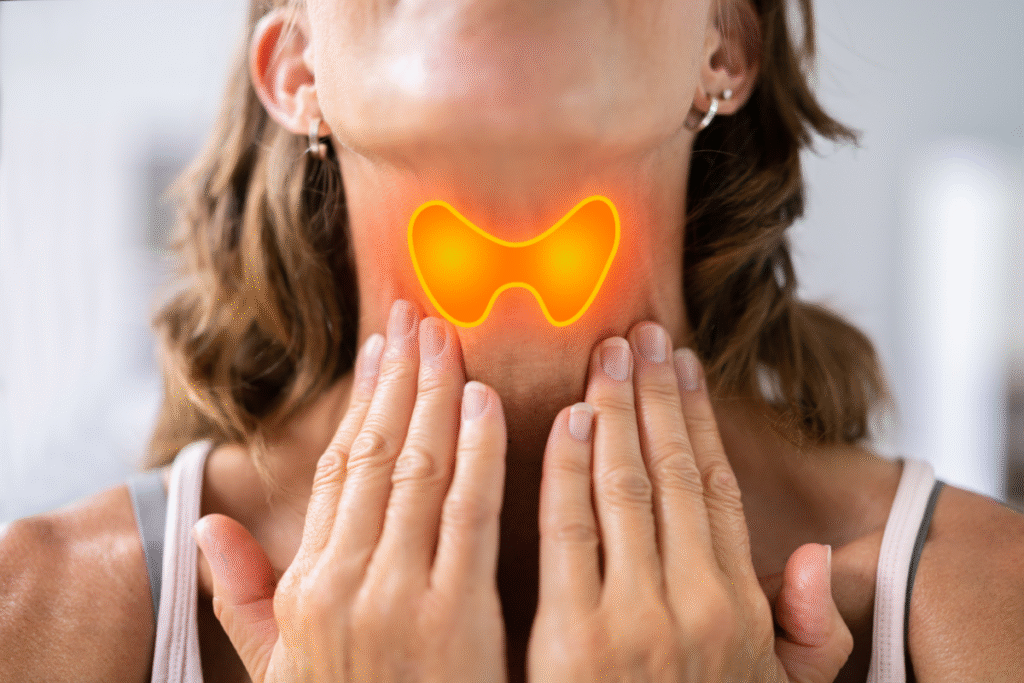
🦋 It Started With a Pair of Slippers
It was a chilly spring morning when Heather realized something wasn’t right. She’d cranked the heat, wrapped herself in a fuzzy robe, and still felt like her bones were ice. “You’re always cold lately,” her husband said as she slipped on her third pair of wool socks that week. She brushed it off.
But over the next few months, more strange symptoms appeared: weight creeping on despite clean eating, relentless fatigue, anxiety out of nowhere, thinning hair in the shower drain, and a constant mental fog that left her grasping for words mid-sentence.
Heather blamed it on perimenopause—she was 44, after all—but deep down, she knew something else was going on.
She was right.
💡 Perimenopause Can Trigger or Unmask Thyroid Imbalances
Most women don’t realize that perimenopause—the 5–10 years leading up to menopause—is a critical window for thyroid health. Fluctuating estrogen levels can directly affect the thyroid and even trigger or worsen autoimmune conditions like Hashimoto’s thyroiditis.
But here’s the problem: most doctors only test TSH, and if it’s “in range,” they say everything looks normal—even when you’re experiencing a laundry list of thyroid symptoms.
Let’s dig into what’s really happening under the surface.
🔄 Estrogen & Thyroid: A Delicate Dance
During perimenopause, estrogen levels fluctuate wildly. Estrogen increases a protein called thyroid-binding globulin (TBG), which binds up thyroid hormones and makes less of them available to your cells.
So while your labs might say your T4 looks “fine,” you may not be converting it to active T3—which is what actually gives your body energy, metabolism, and brainpower.
Add in the cortisol spikes from midlife stress, poor sleep, and blood sugar swings, and you’ve got a perfect storm for thyroid dysfunction.
⚠️ Thyroid Symptoms Women Often Miss—or Get Dismissed For
Could your symptoms be thyroid-related? Take a look:
- Constant fatigue (even after 8+ hours of sleep)
- Cold hands and feet
- Depression or anxiety
- Brain fog or trouble concentrating
- Constipation
- Hair thinning or loss
- Weight gain or stubborn belly fat
- Slow recovery from workouts
- Low libido
- Irregular or heavy periods
- Dry skin and brittle nails
These are often brushed off as “normal aging” or “just hormones.” But many are classic signs of low thyroid function—and they deserve a full evaluation.
🧪 The Labs You Actually Need
If you’ve only had TSH tested, it’s time for a full thyroid panel:
| ✅ Test | Why It Matters |
| TSH | Stimulates the thyroid, but not enough on its own |
| Free T4 | Storage form of thyroid hormone |
| Free T3 | Active hormone your cells use |
| Reverse T3 | Can block T3 in times of stress |
| Anti-TPO / Anti-Tg | Checks for autoimmune thyroid disease (Hashimoto’s) |
Functional optimal ranges often differ from conventional ones. For example, you might be told your TSH of 3.8 is “normal,” but many women feel best between 1.0–2.0 µIU/mL.
🧬 Hashimoto’s: The Silent Thyroid Saboteur
Hashimoto’s thyroiditis is the most common cause of low thyroid in women—and it’s often undiagnosed for years.
It’s an autoimmune condition where the body attacks its own thyroid gland, leading to symptoms that ebb and flow… until they finally become debilitating.
Triggers can include:
- Perimenopause hormone shifts
- Gut imbalances
- Chronic stress
- Nutrient deficiencies
- Viral infections
The only way to know for sure? Antibody testing (Anti-TPO and Anti-Tg)—which is not always included in routine labs.
🌿 What You Can Do Today to Support Your Thyroid
Even if you’re not ready to dive into advanced labs just yet, here are some ways to support your thyroid naturally:
Nutrition
- Eat selenium-rich foods: Brazil nuts, eggs, turkey
- Moderate iodine: sea veggies like nori
- Minimize gluten and processed foods (especially if autoimmune)
- Prioritize protein and balance blood sugar
Lifestyle
- Practice stress regulation: breathwork, walks, journaling
- Get 7–9 hours of quality sleep
- Move daily but avoid overtraining
- Support your gut health with prebiotic fiber and fermented foods (if tolerated)
🧠 Case Study: “Jessica” — It Wasn’t Just Perimenopause
Jessica, a 46-year-old teacher, came to me after being told “everything looks normal” for the fifth time in a year. She had classic signs of low thyroid: crashing energy, 20 lbs of weight gain, mood swings, dry skin, and brain fog that made lesson planning feel impossible.
We ran a full thyroid panel—including antibodies—and found elevated TPO antibodies and a Free T3 at the very bottom of the normal range. Her TSH? 2.9—considered “normal” by most, but suboptimal for someone symptomatic.
We worked on gut healing, nutrient repletion, stress support, and tailored thyroid hormone replacement therapy. Within 3 months, she was sleeping better, back to walking daily, and had dropped 10 lbs without extreme dieting.
“I feel like myself again—and I didn’t realize how far gone I was until I started getting better,” she told me on our last follow-up.
🎯 Ready to Dig Deeper?
You can feel better—and you don’t have to do it alone.
If you live in Washington or Oregon, I’d love to support you 1:1 through personalized labs, prescriptions, and coaching:
👉 [Book a Brief Initial Consult Call here]
Not ready for a full package? Start with the basics:
🎁 [Grab your FREE 5-Day Hormone Reset Mini Course here]
⚕️ Medical Disclaimer
This article is for educational purposes only and is not intended to diagnose, treat, or replace medical advice from your personal healthcare provider. Always consult with a qualified practitioner before starting any new supplement or treatment.
📚 References
- Spencer CA, et al. (2025). Assay of Thyroid Hormone and Related Substances https://www.ncbi.nlm.nih.gov/books/NBK279113/
- Sudha Thiruvengadam (2021). Thyroid disorders in elderly: A comprehensive review https://pubmed.ncbi.nlm.nih.gov/34154807/
- Wentz I. (2017). Hashimoto’s Protocol. HarperOne. https://www.harperacademic.com/book/9780062571298/hashimotos-protocol/
- MedlinePlus Genetics. Hashimoto thyroiditis. https://medlineplus.gov/download/genetics/condition/hashimoto-thyroiditis.pdf
- St. John’s Wort: Beware of its effect on thyroid medications. Mayo Clinic. https://www.mayoclinic.org/drugs-supplements-st-johns-wort/art-20362212

